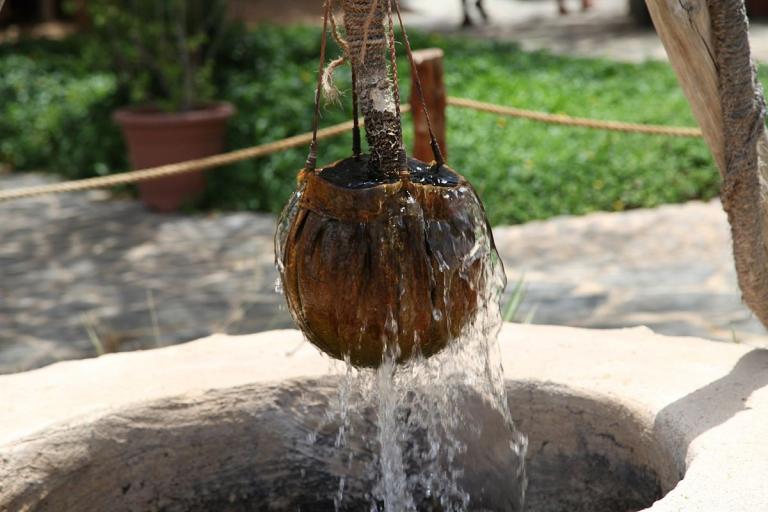You’ve likely seen those commercials for Capital One credit cards with the tag line, “What’s in your wallet?” (Refer here and here). In this post, we will ask another question: “What’s in your water?” More important than any credit card, and the most important commodity or resource you could purchase, is water. Such has always been the case for the human race given our biological wiring, and always will be. Just think: adult human bodies are constituted by up to 60% water; without sufficient, healthy water, we eventually die. Therefore, it shouldn’t be difficult to understand the ancient biblical text Proverbs 4:23—which makes a metaphorical connection to water and wellsprings—exhorting people then and now: “Above all else, guard your heart, for it is the wellspring of life.” Moreover, it is little wonder that given water’s import for human survival, warfare tactics have included attacks on enemy water supplies. From ancient times to the present day—from age-old Mesopotamia to contemporary Iraq—warfare strategies have included scorched earth tactics of well-poisoning, as a recent Smithsonian article titled “The History of Poisoning the Well” makes clear. Here are three quotes from the article:
Since the dawn of conflict, armed groups have targeted water as both a tactic and potential weapon of war. In savaging rivers, wells, lakes and more, attacking troops punish locals for their lack of support—or render the land useless if facing imminent defeat. And by harnessing these resources, groups can alternately flood or starve opponents of water, historically a ploy favored by those up against unkind odds…
“The fundamental value of water to life makes it an attractive target during conflict,” says Peter Gleick, a scientist and water expert at the California-based Pacific Institute, which charts water-related violence. “We understand now that that is a violation of human rights, but that has not prevented it, even in modern times, from being casualty of war.”
As climate change saps rainfall in places and population growth and state mismanagement deplete groundwater in others, hydrologists anticipate more well destruction in the years to come. “We’re doing an analysis of the data now in the conflict chronology, and even setting aside questions of the quality of data over time there are very clear trends of increasing attacks on water sites, increasing use of water as a weapon, and I think that reflects growing pressure on water worldwide,” says Gleick. “Water is becoming increasing valuable, increasingly scarce, and unfortunately increasingly fought over. And I don’t see it going the other way.”
As water shortages presumably increase globally, what bearing will such limited supply and increasing demand pose for conflicts of various kinds?
Scorched earth policies involving poisoning water supplies go beyond physical combat. According to the Bible, we are engaged in a spiritual conflict that involves scorched earth policies, including poisoning the well, namely heart affections and values. Thus, as noted in the opening paragraph, Scripture exhorts us to guard our hearts above all else. Without pure wellsprings or wells, namely, clean, pure hearts, we die.
Nineteenth century Biblical expositor Albert Barnes understood the importance of safeguarding wells in the ancient world, as well as such safeguarding’s metaphorical import for our spiritual lives. In his exposition of Proverbs 4:23, Barnes writes: “The fountains and wells of the East were watched over with special care. The heart is such a fountain, out of it flow the ‘issues’ of life. Shall men let those streams be tainted at the fountain-head?” In succeeding posts on this topic, we will reflect on such matters as what is involved in safeguarding the human heart as the well-spring of our spiritual life. No matter what else we do, no matter what other aspects of life we cherish, we must take most diligent precaution to safeguard the heart as the fountain-head of life.













